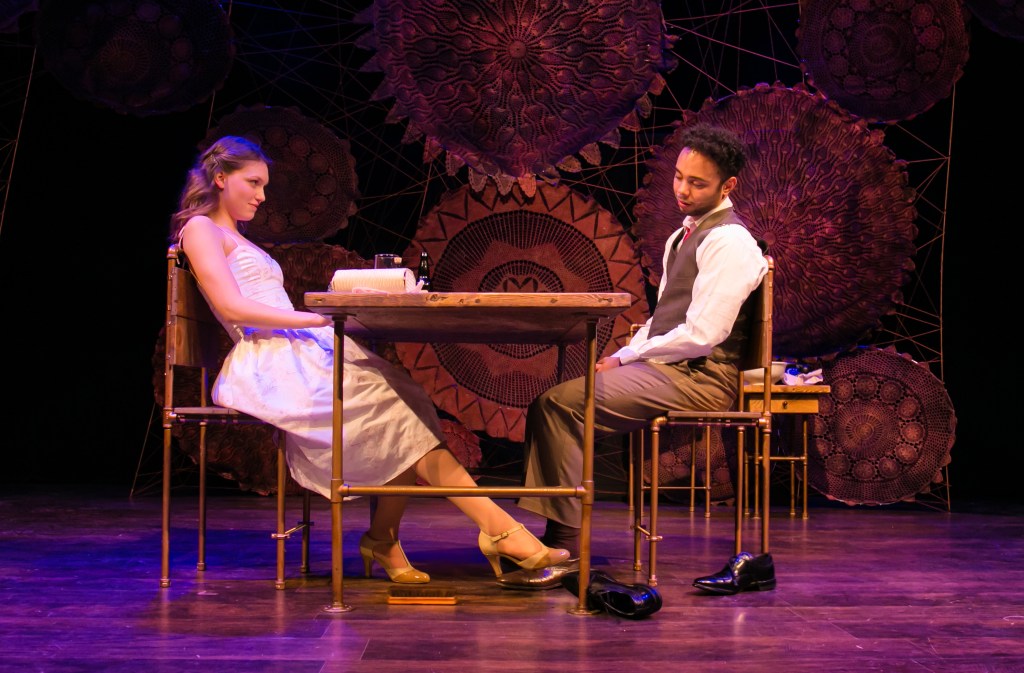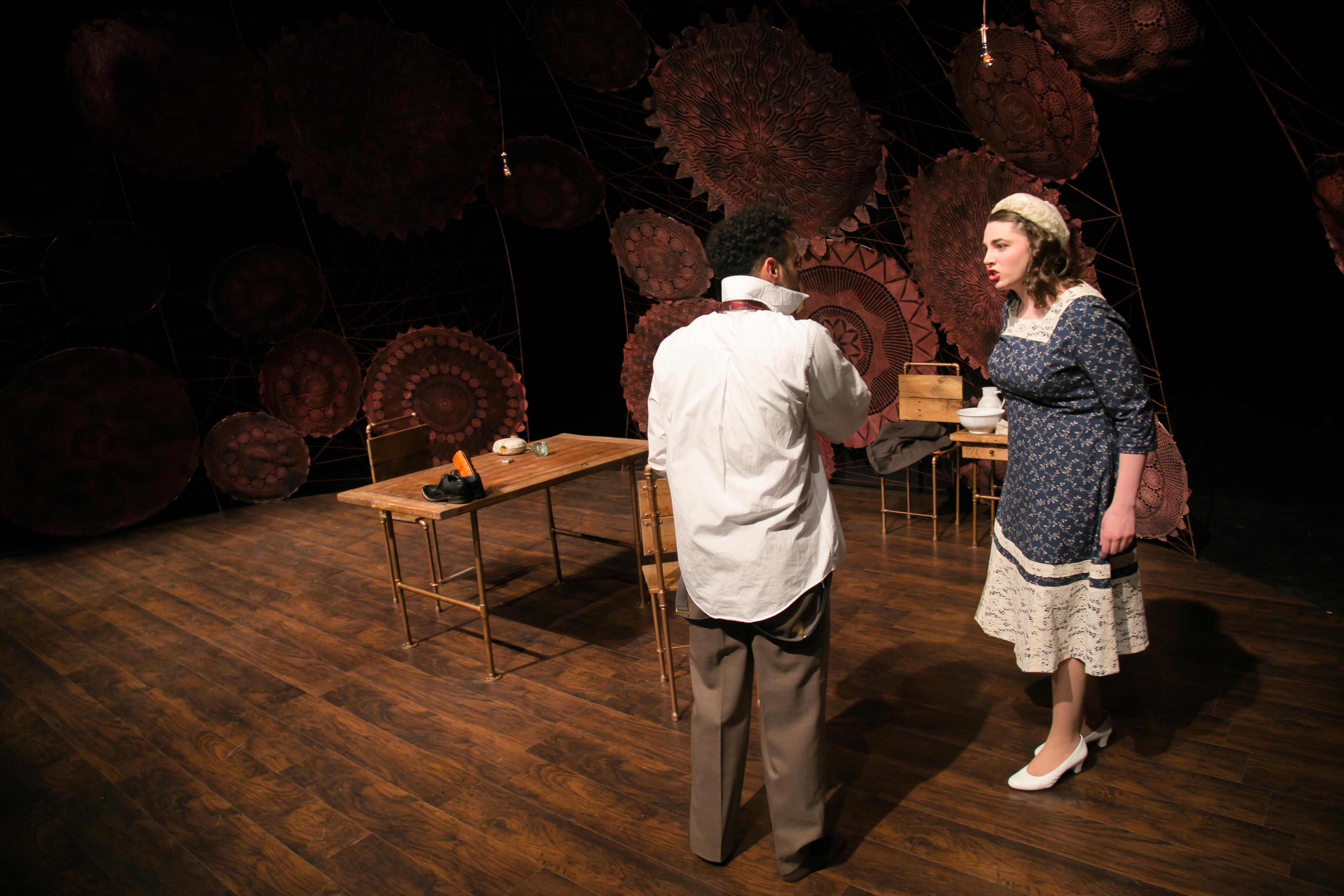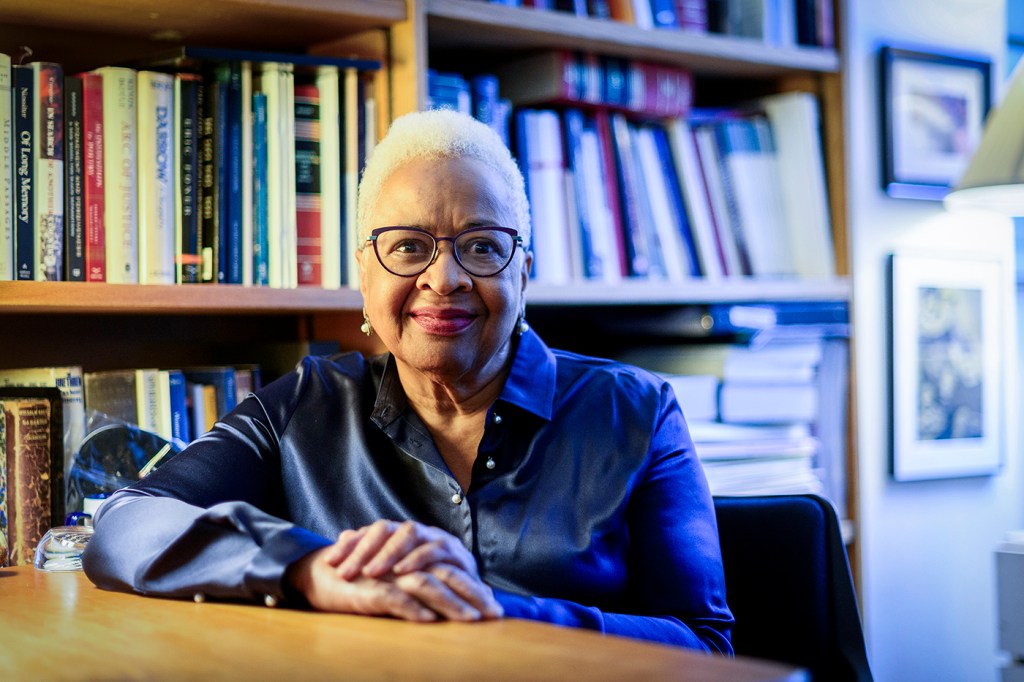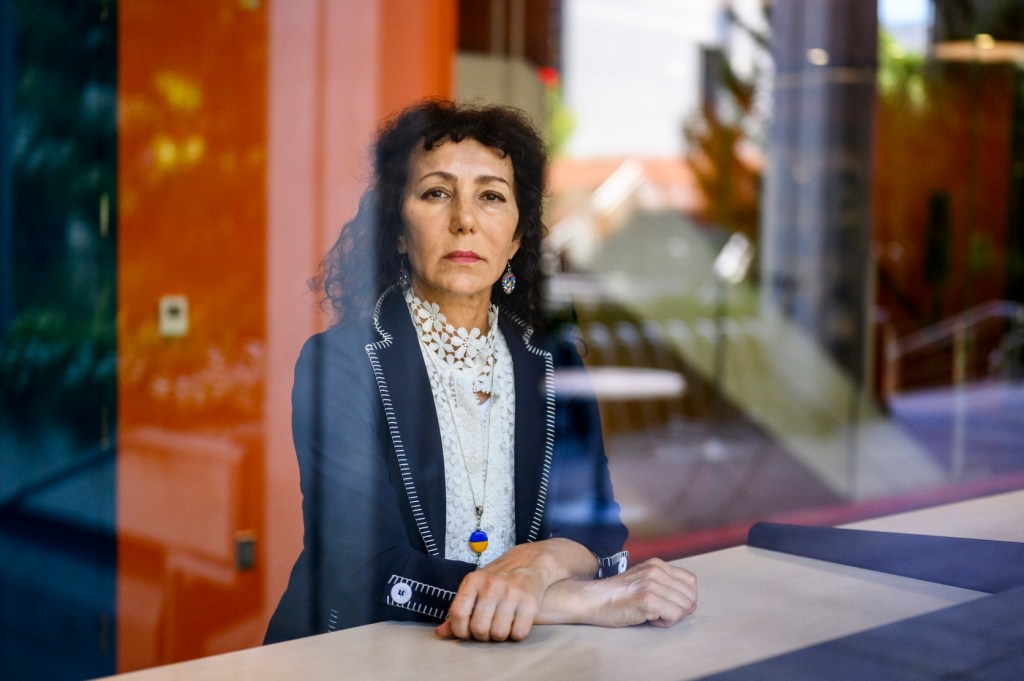Two new plays to explore women’s rights

In a first-of-its-kind programming decision, the Department of Theatre will host back-to-back plays that explore the themes of women’s rights, and women’s changing roles in society.
The first—After Miss Julie, an adaptation of August Strindberg’s 1888 play Miss Julie—will run from Wednesday, Feb. 8 to Sunday, Feb. 12 in the Studio Theatre.
The second—Ingmar Bergman’s Nora, an adaptation of playwright Henrik Ibsen’s A Doll’s House—will run from Wednesday, Feb. 15 through Sunday, Feb. 19 in the Ryder Theatre Lab.
Tickets for both plays can be purchased on myNEU.
After Miss Julie, directed by guest artist A. Nora Long, is a distillation of a play set in 1945 in an English country house on the eve of the Labour Party’s landslide victory. The daughter of a wealthy family wanders into the servants’ quarters during a summer ball, thus setting off a fraught romance.

Kaya Simmons and Carla McDonough rehearse “After Miss Julie,” which opens Feb. 8. Photo by Grant Terzakis/for Northeastern University
Nora is a take on a groundbreaking story about one woman’s attempt to assert her own identity as she leaves her husband and three children to embark on a journey of self-realization.
Collectively, the mini-festival is titled “Women of Anarchy: The Nora/Julie Project,” a reference to each play’s main characters.
Antonio Ocampo-Guzman, associate professor of theatre and director for Nora, said that the productions would challenge their student-actors in a variety of ways.
“As one of the main acting teachers in our department, I’m always looking for the material that’s going to be the most demanding for our students,” he said. “Sometimes plays that are well-known, like these two are, are well-known because of the challenges they present.”
The plays follow in the wake of women’s marches across the world that drew millions of participants. Though Ocampo-Guzman said that wasn’t part of the original plan, the productions do fit into a broader societal conversation around women’s rights.
“We’re talking about how important it is for women to be fully empowered,” he said. “These plays speak to the fact that we have to stand up for what we believe is right.”
Both productions have been streamlined to portray important themes. In each, a small cast of students—three in After Miss Julie and five in Nora—will be challenged to delve deep into “complex, rich” characters.
“These characters are richly written, and written in a way that requires our student-actors to tap into a deep sense of themselves and take huge risks on stage,” Ocampo-Guzman said.
Both written in the late 1800s, the scripts themselves also offer challenges to a modern actor.
“This style of theater is very verbal,” Ocampo-Guzman said. “In conversation now, we say a lot of words without saying much. In these productions, though, every single word, every single pause is so charged from a verbal point of view that it’s a real challenge to articulate that.”





